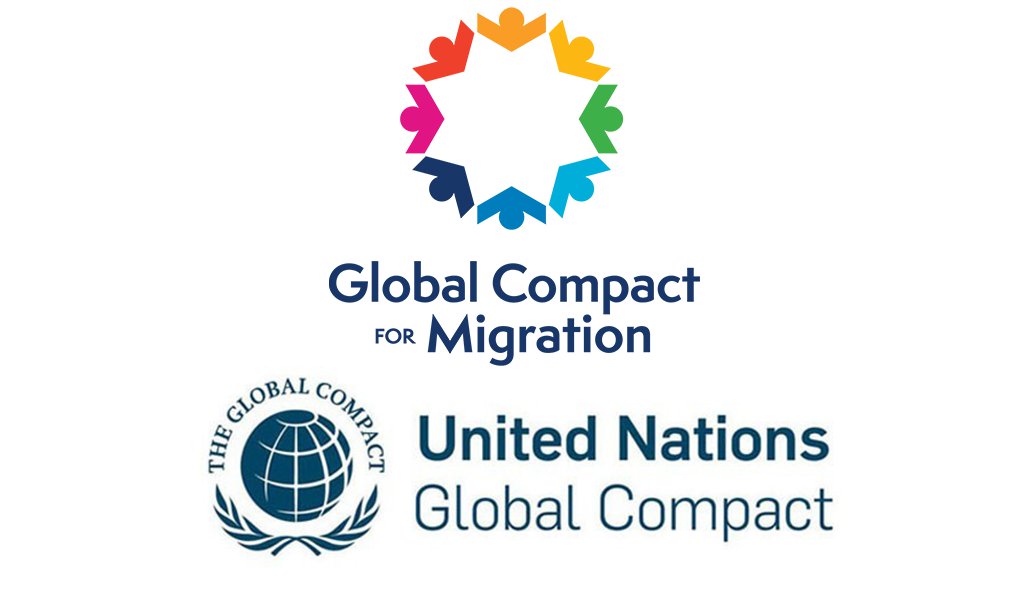Global Migration Woes
July 19, 2018 | Expert Insights

Hungary has withdrawn from a UN pact on migration, which it states is against the country’s security interests. The move comes amidst accusations that the EU has not taken comprehensive measures to counter the problem.
Background
Europe is at the center of a crisis sparked by migration. In 2015 alone more than a million migrants and refugees crossed into Europe. A number of countries in the continent struggled to handle the influx of people entering their territories. Countries within the EU have had disagreements on how best to deal with the problem.
Populist politics has gripped the continent with democracies succumbing to the pressure of anti-immigrant, nationalist groups. The recent Euro Summit sought to address the looming refugee crisis by creating ‘regional disembarking platforms’ in North African countries like Algeria, Egypt, Libya, Niger, Tunisia and Morocco. They also agreed to increase investment in these countries in order to support the migrant processing centers.
Many Central European countries had rejected an EU scheme to host 16,000 refugees. These countries were criticized for their internal measures which undermines not only the bloc’s refugee policy, but also the principles of the Schengen Area.
Viktor Orban, the current prime minister of Hungary, had promised to stop the flow of refugees and migrants into Hungary and decried the so-called "Islamisation" of Europe during his election campaign. Taking a tough stance on migration, he went on to build a fence on the Serbian border in September 2015 in order to keep out Middle Eastern and African migrants. Furthermore, his right-wing nationalist government has enforced several laws to control migration, and his tough actions have been largely criticized by the United Nations.
Analysis
The draft for the Global Compact for Migration was approved last Friday by 191 UN member nations after 18 months of negotiations. USA had previously withdrawn from the pact in December citing inconsistencies with its migration and refugee policies, while Hungary has refused to sign it at a ceremony to be held in Morocco in December. Hungary's foreign minister, Peter Szijjarto said. “Its main premise is that migration is a good and inevitable phenomenon. We consider migration a bad process, which has extremely serious security implications. Hungary must step out of the approval process, and by doing so, make it clear that in no way does it consider any measure or guideline of the package to be the way forward.” Poland and the Czech Republic have taken similar stances on the issue.
The new treaty is considered the first international document on creating a worldwide framework for managing migration. It lays out 23 objectives to open up legal migration and better manage flows of people as the number of refugees worldwide has increased to about 250 million. The pact also seeks to encourage "international cooperation among all relevant actors on migration, acknowledging that no state can address migration alone, and upholds the sovereignty of states and their obligations under international law."
Several negotiations occurred with many governments insisting that migrants who were not properly registered must returned to their countries of origin.
Meanwhile, in an environment of increasingly anti-immigrant sentiment Dutch Foreign Minister Stef Blok has been criticized for stating that multi-cultural societies can never be peaceful. He called Suriname, a former Dutch colony, a failed state because of its diverse ethnic makeup. "Give me an example of a multi-ethnic, multi-cultural society, where the indigenous population still live... where they live in a peaceful, societal union," Blok told a gathering of Dutch employees of international organizations. Lawmakers from several Dutch political parties, including all members of the governing coalition, demanded an explanation for Blok's remarks.
Suriname, a small country on South America’s Atlantic coast, includes a mix of ethnicities such as people of East Indian, Chinese and Dutch ancestry as well indigenous peoples and maroons, who are descendants of escaped slaves. The country, which became independent from the Netherlands in 1975, has had an occasionally troubled political history.
Counterpoint
According to Hungarian officials, the country’s proposals were brushed aside during the debate of the pact, which mostly favoured the interests of African and Latin American countries. The document’s final version states that it is “legally non-binding”, a condition that Hungary views with suspicion. It further stated that the deal was a threat to the world as it encouraged dangerous movements of people.
Assessment
Our assessment is that USA and Hungary’s refusal to sign the global pact might weaken the opportunities to address the challenges associated with migration today. We feel that countries like Poland, Hungary and Czech Republic have taken a tough stand against irregular immigration which could threaten European stability in the long run. We feel that the effective management of migration requires international cooperation. Every individual has the right to safety, dignity and protection regardless of their migratory status.








Comments